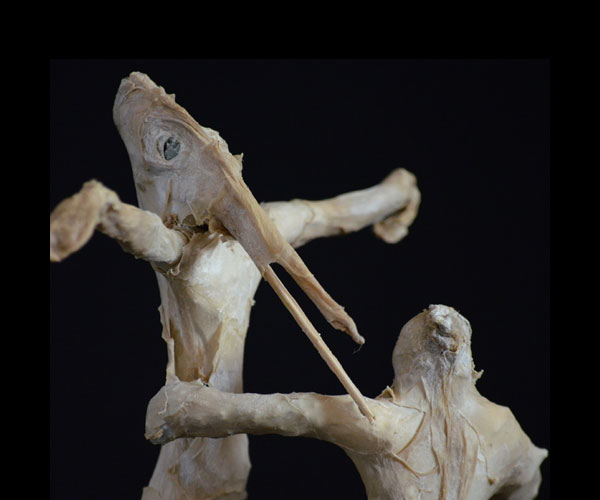After coming to the end of the delicious, rapturous, repetitive, raving, magnificent most-engaged-knight-in-the-entire-world Don Quixote, I’ve become obsessed with Rachel Cusk’s trilogy; Outline, Transit and Kudos. She’s the anti-Cervantes, the “dissociate artist for a dissociate age, asking from the back seat; ‘is this real life?'” So writes Patricia Lockwood in the London Review. Like so many others, I started off disliking her, and still do, but I read on.
Probably it’s the Voice. It drones seamlessly from one person’s story into the next, commenting when it feels like it, then going on to the next like a distracted, OCD dog. The voice is monotonous, without nuance. At times, it’s indistinguishable from the person it’s supposed to be conversing with. You get the sense that the Voice listens, but that it can only respond to what mirrors itself in the teller’s stories. When the Other Voice, the one telling a story (mostly men strutting their stuff) stops for breath, the Cusk Voice comes out like the cuckoo in the clock, presents its rebuttal, or its insight, which are at times so embedded with “it seems to me” and “in a kind of way” and “perhaps” as to be unfathomable, pretentious, as if ones point of view is the only proper response to a story being told by someone else.
Lorrie Moore says this: “We see that we are experiencing a presentation: a midair collusion of storytellers and pronouncers. Faye’s voice and those of the characters she encounters sometimes merge—and that is the point. However underperforming our lives may be, the stories of them are always performances. Faye makes statements that seem to announce the book’s narrative strategy: “I was beginning to see my own fears and desires manifested outside myself, was beginning to see in other people’s lives a commentary on my own.”
The Voice is hypnotic. I’m mesmerized. Cusk is traveling, and her fellow travelers are as mundane as mine are.
I’m also reading Sigrid Nunoz, The Friend, Houellebecq’s Submission and I’m paging through Karl Ove to see if it’s possible to commit to The Struggle, which I’ve been saving for when I’m convalescing from flu. Strangely, I find no pleasure reading these authors. With some exceptions, mostly their sentences ring pithy as hammers banging through rock, stripped of imagery, lacking sensuality, self-involved with their own drama. And yet, and yet – they are driven, relentless, trance inducing.
I came to Cusk late because along with Sheila Hati and Claudia Day (whose recent article in the Paris Review begins with “I wrote the first draft of my novel Heartbreaker in a ten-day mania in August 2015” – I’m supposed to want to read this?) she was part of the New Motherhood, what it means, what price you pay, how to write a novel with children hanging from your clothing sucking your blood. I admit that the topic doesn’t interest me, I simply don’t care; the topic brings out the worst in me, the me that says, Yes, giving birth is a big deal, yes domesticity is the death of freedom, yes, it is the birthing of the death of another and yes, it’s also a big deal to write a novel while a mother. Yes yes yes, there are consequences for everything, get over it, find something else to write about. Aside from Patty Smith and Keith Richards, who have a ball writing about their =interesting, demonic lives, I can’t think of a memoir worth writing.
What it boils down for me to is this: Everything in life is someone’s drama, and eventually, unless it is transformed into language, paint, color, rhythm, movement, conversation; story; into beauty, it feels like just one more voice grinding away in the background with the clothes dryer.
Which, if you’re DeLilio, or Robert Altman and maybe Rachel – well, drone on.
